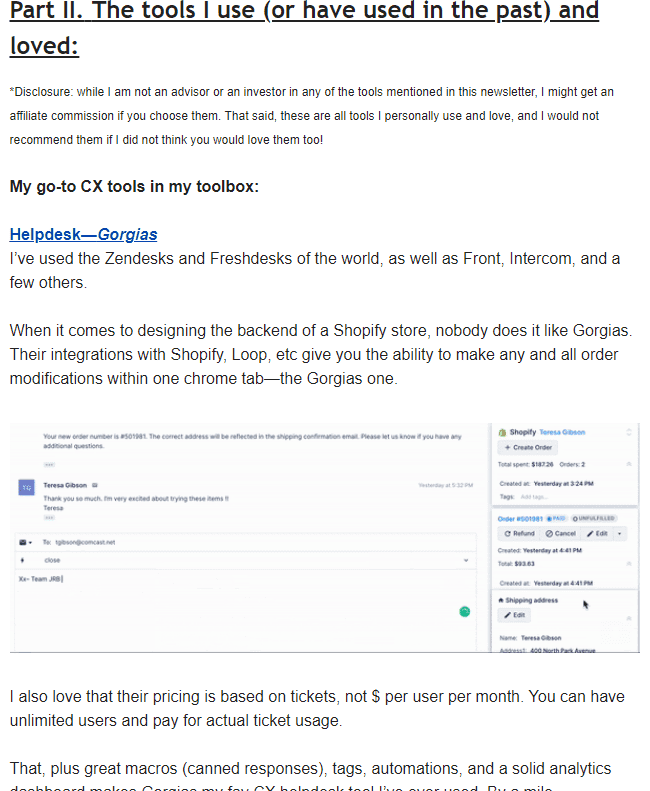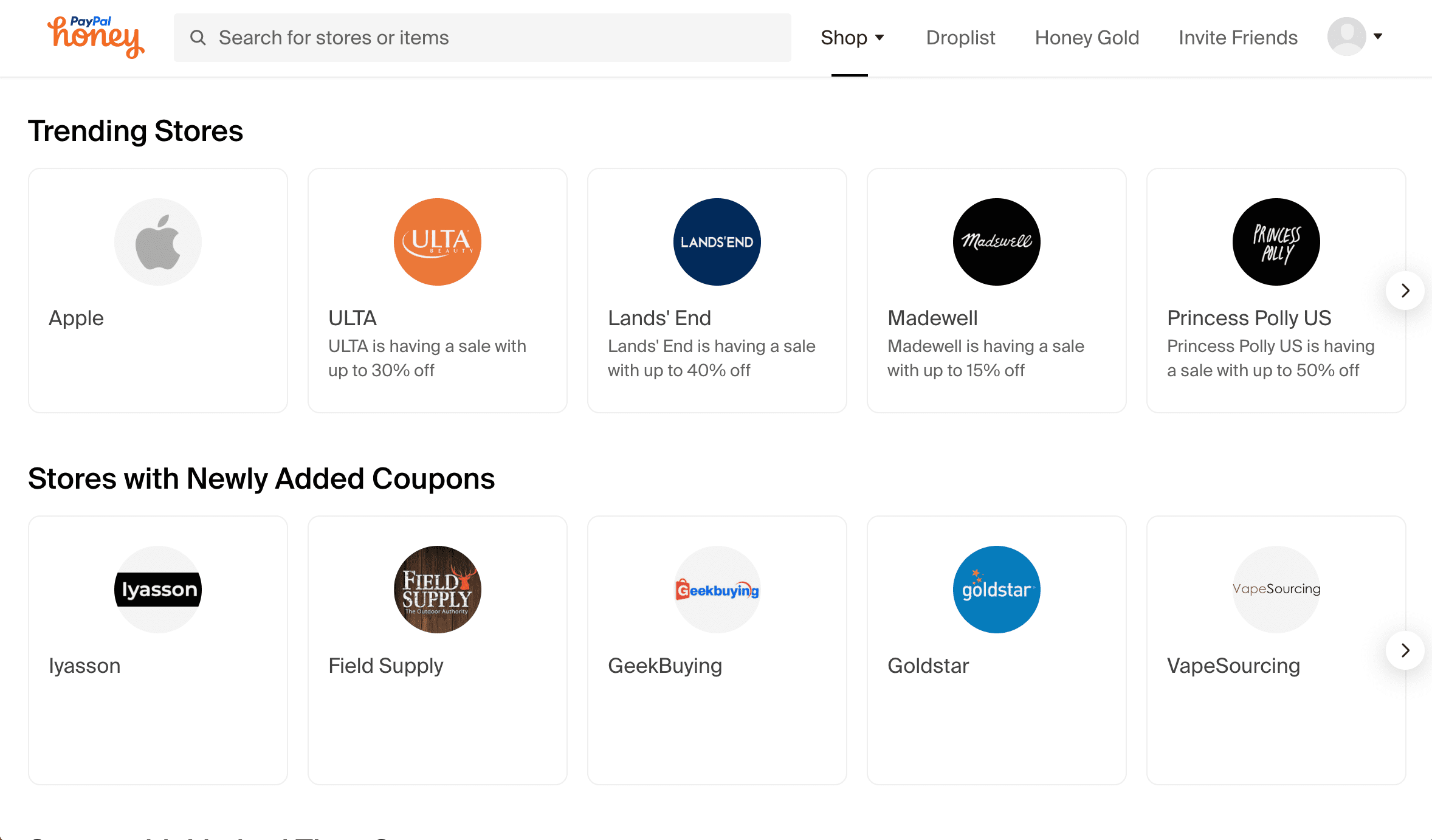Are you seeking a creative way to boost brand awareness and develop a deeper connection with your target market? Affiliate marketing management is a process that involves working with affiliates to promote your products and services. Affiliates can be a great way to reach new customers and increase sales. This blog post will discuss affiliate marketing management and how it can help your business grow!
Affiliate Marketing Management Explained
Affiliate marketing management refers to managing and coordinating the activities of different affiliates to help grow a company’s overall presence online. At its core, affiliate management involves working with external partners to promote products and services on a given website or platform.
This means that businesses need to manage a network of affiliates, assign tasks, coordinate campaigns and promotions, maintain communication with affiliate partners, and successfully track results to utilize affiliate marketing for growth.
Through effective affiliate marketing management, companies can expand their reach and drive more traffic, customers, and revenue online.
Affiliate Management vs. Affiliate Marketing

Affiliate management and affiliate marketing are two concepts that are closely related but serve quite different functions.
Affiliate management, or managing affiliates, typically refers to the process of working with a group of partners or other third-party representatives who promote or sell a product or service on behalf of an organization.
This might include recruiting, onboarding, and training these partners, setting performance targets; tracking performance; and providing incentives for meeting those targets.
In contrast, affiliate marketing uses special links or discount codes to track sales that result from a promotional effort undertaken by affiliates.
While affiliate marketing has traditionally been one approach used in affiliate management, it is now frequently used independently as well. According to a Forbes report, the affiliate marketing industry is expected to reach more than $12 billion in the next several years.
Whether it is incorporated into an affiliate management strategy or performed standalone, effective affiliate marketing can be a powerful tool to generate revenue and increase brand awareness.
There is a lot to learn about affiliate marketing, and this article will help you understand the importance of creating a plan that works well for your organization.
Why You Need an Affiliate Marketing Program Manager
An affiliate marketing program manager is a professional who oversees and coordinates an organization’s affiliate marketing efforts.
The role of an affiliate marketing program manager is to identify potential affiliates, recruit them, and then provide support and guidance throughout the relationship.
You need such affiliate managers to:
To ensure you onboard only the best affiliates
An affiliate program is only as good as the affiliates in it. A manager will help you determine which affiliates are a good fit for your program and which ones aren’t.
To consistently recruit and create relationships with new affiliates
A good affiliate program manager will have their finger on the pulse of the affiliate marketing industry. They’ll know which new affiliates are worth pursuing and how to get in touch with them.
To monitor your performance
Your affiliate program manager will be able to tell you which of your marketing campaigns are driving the most sales and which ones could use some improvement.
Let’s you focus on your business — you don’t have to micro-manage another marketing channel
Finally, having a manager for your affiliate program frees you up to focus on other aspects of your business. You don’t have to spend time micro-managing another marketing channel – you can leave that to the experts.
What Does an Affiliate Manager Do?
An affiliate manager carries out the following responsibilities:
Recruits affiliates
An affiliate manager actively recruits potential affiliates. They identify target websites and work on building relationships with the site’s web admins. They also ensure that the affiliates being recruited are a good fit for the merchant’s products or services.
Welcomes affiliates to your brand + your offers
The affiliate manager is responsible for welcoming affiliates to your brand and providing them with information about your offers. They also answer any questions that affiliates may have.
Keeps affiliates up to date on your campaigns
An affiliate manager keeps affiliates up to date on your campaigns. They provide affiliates with information about new products, special promotions, and changes to the affiliate agreement terms.
Monitors affiliate behavior to ensure they comply with your program rules
The affiliate manager also monitors affiliate behavior to ensure that they comply with your program rules. They may suspend or terminate an affiliate’s account if they violate your conditions.
Maintains positive relationships with affiliates
Maintaining positive relationships with affiliates is an essential part of the affiliate manager’s job. They resolve disputes and provide support to affiliates. Without a good relationship with affiliates, recruiting and retaining top talent would be difficult.
Measures performance and seeks areas of improvement
An affiliate manager measures the performance of affiliates and seeks areas of improvement. They make sure that affiliates are meeting their sales targets and that they are happy with the merchant’s products or services.
In-house vs. Outsourced Affiliate Management
The affiliate management industry is ever-changing, and with that comes the debate of in-house vs. outsourced affiliate management. To make the best decision for your company, it’s important to understand the pros and cons of each option.
In-house affiliate management benefits from having more control over your program. You can manage affiliates directly and establish a strong company culture within your team.
Additionally, you have full transparency into all aspects of the program and can more easily identify issues that need to be addressed. However, in-house management can also be more expensive and time-consuming, as you need to invest in recruiting and training a team of qualified individuals.
Outsourced affiliate management provides a cost-effective alternative to in-house management, as you don’t need to invest in building an internal team. Additionally, outsourced affiliate program managers often have extensive experience and knowledge in the industry, which can be beneficial for growing and scaling your program.
However, when working with an outsourced manager, you give up some degree of control and transparency. It can also be more difficult to develop strong relationships with affiliates when working through a third party.
Ultimately, the decision of whether to outsource or manage in-house comes down to what’s best for your company. There is no one-size-fits-all solution, so it’s important to weigh the pros and cons of each option before making a decision.
Affiliate Program Recruitment
Affiliate program recruitment is a detailed process that requires careful planning and an in-depth understanding of the needs and preferences of potential affiliates. To successfully recruit affiliates, it is important first to understand what motivates them to join affiliate programs and what factors might prevent them from doing so.
Some common considerations for affiliate recruitment include criteria such as existing website traffic, existing affiliate channel, or the availability of existing promotional materials.
According to an article from Purply, over 90% of affiliates are fraudulent, inactive, or don’t meet minimal performance criteria. This makes it all the more important to screen affiliates carefully during the recruitment process.
Additionally, it is important to consider how much time and effort affiliates are willing to put into promoting your product or service and how much revenue they expect in return.
Overall, an effective affiliate recruitment strategy requires a thorough knowledge of the affiliate landscape and a deep understanding of the needs and interests of potential affiliates. With these factors in mind, you can successfully recruit beneficial partners that will help drive your business forward.
Different Types of Affiliates
There are many different types of affiliates in the world of online marketing. Each type brings its own unique set of skills and resources that it can use to promote its products or services.
Here are some different types of affiliates in the world of affiliate marketing:
Content affiliates

Content affiliates are bloggers or other content creators that promote products or services through their writing. They typically have a large following of engaged readers or viewers who are interested in the products or services they recommend.
Social media influencers

Social media influencers are people with sizeable followings on social media platforms like YouTube, Instagram, TikTok, or Twitter. They often have a high degree of influence over their followers and can promote products or services in a way that is both authentic and engaging.
Email marketers

Email marketers are affiliate marketers promoting products or services through their email campaigns. They typically have a large list of subscribers who have opted in to receive their emails and are interested in the products or services they recommend.
Comparison shopping sites

Comparison shopping sites allow users to compare the prices of products or services from different vendors. They have a large amount of traffic and can be a great way to promote products or services to a wide audience.
News and media sites

News and media sites are websites that publish news articles or produce other types of media content. They have a large volume of traffic on their sites and serve as an excellent platform to promote your products or services.
Coupon/deal aggregator sites

Coupon/deal aggregator sites collect coupons and deals from different vendors in one place. They have a significant quantity of traffic and are an excellent way to reach a broad audience by providing them with coupons.
Cashback/loyalty sites

Cashback/loyalty sites offer cash back or other rewards for shopping at certain retailers. They have a dedicated following of users who are interested in getting the best deals on products and services.
It is essential to consider what type of affiliate would best fit your business when choosing affiliate partners. For example, if you are selling a physical product, then an affiliate who is a content creator or social media influencer might be a good fit.
The most important thing is to choose affiliates that are a good fit for your business and with whom you feel confident working with. By doing this, you will be able to build strong relationships with your affiliates and create a successful affiliate marketing program.
Setting Your Affiliate Program Up For Success
Here are some of the things to keep in mind when setting up your affiliate program for success:
Cookie window
The cookie window is the amount of time a customer has to purchase after clicking on an affiliate link. If the customer does not buy within this time limit, the affiliate will not get credit for the sale. For example, if a customer clicks on an affiliate link on Day 1 but does not make a purchase until Day 29, the affiliate will still receive credit for the sale if it is a 30-day window.
It is important to set a reasonable cookie window so that affiliates are not discouraged from promoting your products. At the same time, you don’t want to set the cookie window so long that it becomes difficult to track sales and attribute them to the correct affiliate.
Commission structure
The commission structure is how affiliates are compensated for their sales. There are various types of commission structures, but the most common are pay-per-sale, pay-per-lead, and pay-per-click. Affiliate commissions usually range from 20 to 30 percent.
Choosing a fair commission structure for both affiliates and your business is essential. For example, if you are selling a physical product, then a pay-per-sale system would be the fairest to affiliates.
On the other hand, a pay-per-lead or pay-per-click structure might be more appropriate if you are selling a service.
Motivating merchants
In order to motivate merchants to promote your products, it is crucial to offer them a competitive commission rate. For example, if you are selling a physical product, then you should offer a higher commission rate than if you were selling a digital product.
It’s also vital to offer incentives to affiliates, such as bonuses and contest prizes. By doing this, you will be able to attract more affiliates to promote your products.
Creating banners/other creatives
It’s critical for affiliates to use your items by giving them banners and other creatives that they may employ on their own websites. These should be eye-catching and relevant to the products or services that you are selling.
It’s also critical to offer your affiliates access to product pictures and other marketing materials. You’ll be able to assist them in promoting your items more effectively this way.
Managing Affiliate Growth
When aiming to grow your affiliate marketing program, the key is to manage that growth strategically and sustainably. This requires a careful balance of planning and flexibility and constant evaluation of your affiliate ecosystem and targeting of new partnerships.
At the outset, it is important to assess your current affiliate relationships and consider their performance, potential growth opportunities, and support needs. Then, you can weigh those factors against any specific considerations for expansion or renewal.
You may wish to devote more time and effort to developing close ties with high-performing affiliates who are possible partners if you discover that they have the potential to grow.
You may wish to devote more time and effort to developing close ties with high-performing affiliates who are potential partners for growth if you discover that they have the potential to grow.
Once you have determined which kind of growth makes the most sense for your business and which affiliates might be good candidates for further development, you can then start actively reaching out to new partnerships that align with your goals and strategy.
As long as you are willing to put in the necessary effort to keep an eye on new developments within your affiliate network and assess emerging trends in the marketplace, growth will become much more attainable over time.
Affiliate Marketing Management Experts Committed to Your Success
Purebred Marketing offers affiliate marketing management programs to eCommerce brands that bring in 6-8 figures annually. When you partner with us, your brand get’s access to the 10,000+ relationships we have with online publishers and is instantly paired with affiliates who promote your products to hungry buyers.
If you’re a DTC or CPG eCommerce brand and would like to know more about how Purebred can help you opt in to one of the lowest-risk, highest-reward digital marketing tactics, fill out the form below, and we’ll be in contact.
Conclusion
We hope this article has helped you better understand affiliate marketing management. As you can see, it is a process that requires careful planning and execution.
If you are thinking about starting an affiliate marketing program for your business, make sure to partner with a reputable affiliate marketing agency. They will be able to help you every step of the way, from developing your strategy to executing it flawlessly.
Partnering with carefully chosen affiliates can impact total sales, help meet business goals, and drive traffic to your business.
FAQ
What is affiliate marketing?
Affiliate marketing is solely performance-based marketing in which a firm pays one or multiple affiliates based on the number of customers acquired by the affiliate’s efforts.
What is affiliate marketing management?
Affiliate marketing management is the thorough process of overseeing and coordinating an affiliate marketing program. This includes developing the program’s strategy, recruiting affiliates, tracking and measuring performance, and paying commissions.
How does affiliate marketing management work?
Affiliate marketing program management works by creating a relationship between a merchant and an affiliate. The affiliate agrees to promote the merchant’s products or services in exchange for a commission on sales or leads generated.
What does an affiliate manager do?
An affiliate manager is responsible for maintaining and growing relationships with affiliates and recruiting new affiliates to work with the merchant. They are also responsible for tracking affiliate activity and ensuring that commissions are paid out correctly.
What are the benefits of affiliate marketing management?
There are many benefits to affiliate program management, including increased exposure for the merchant, the ability to reach new customers, and the potential to generate additional revenue.
Some other benefits also include developing and executing affiliate marketing programs and being able to track and measure the performance of affiliates.
What is affiliate management software?
Affiliate management software is a tool that helps businesses to develop, track, and manage their affiliate marketing programs. It can help with tasks such as developing strategies, recruiting affiliates, monitoring performance, and paying commissions.









